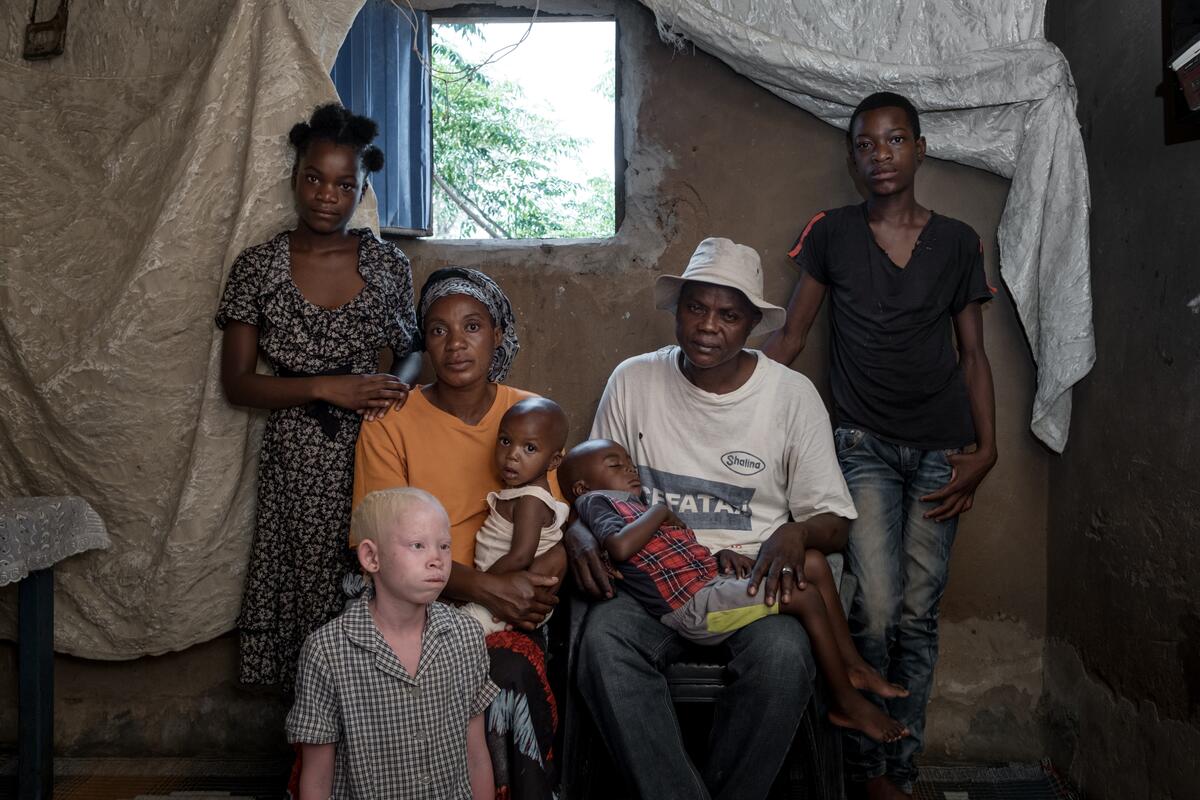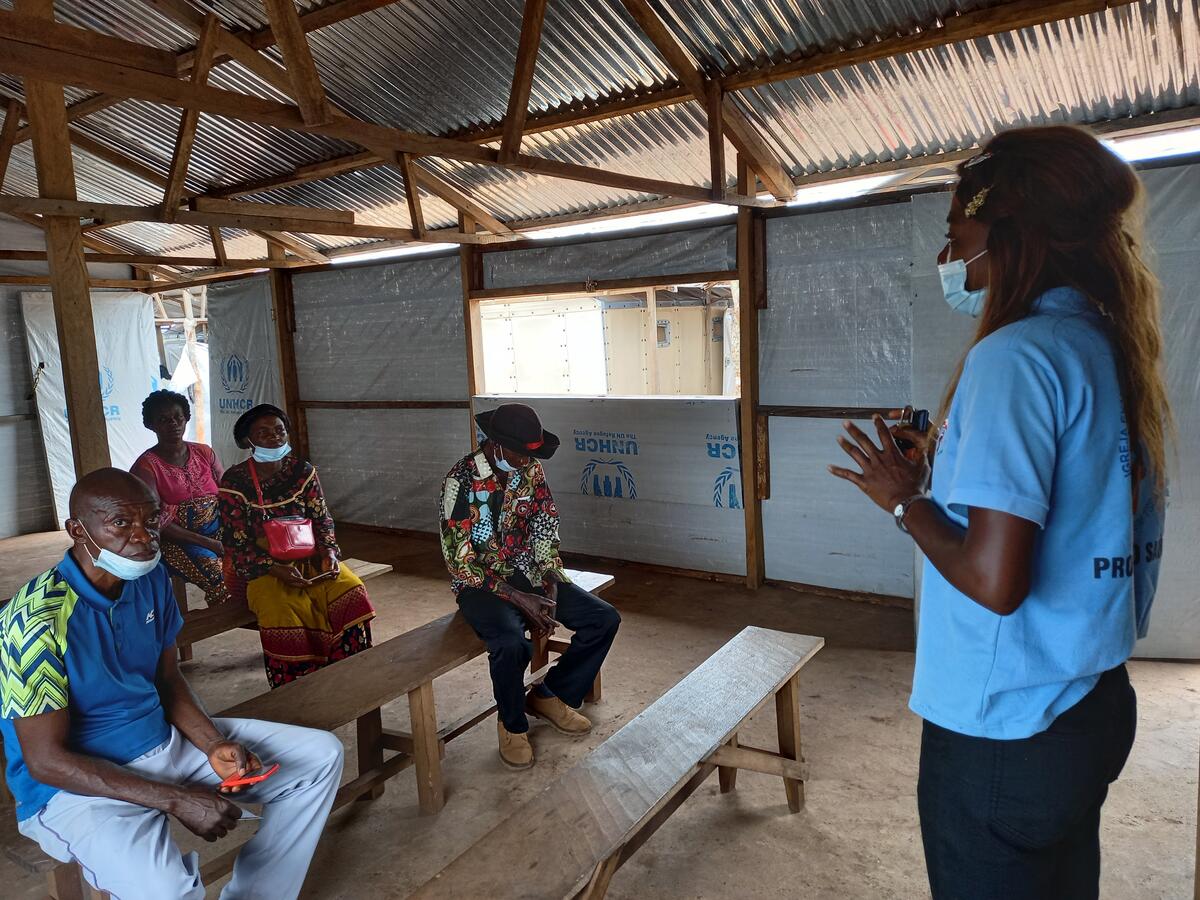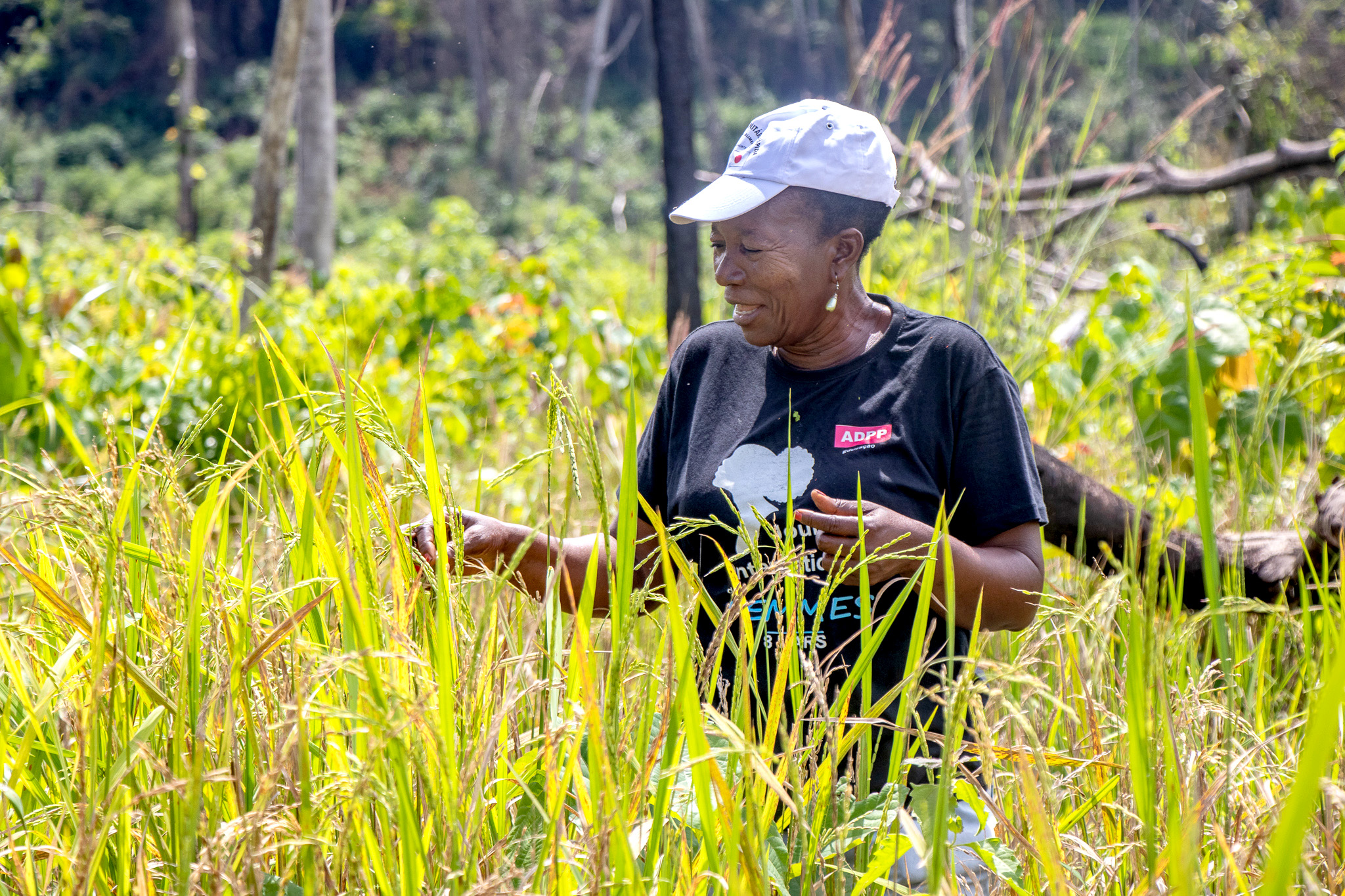Namibia: border curfew may prevent flow of genuine Angolan refugees
Namibia: border curfew may prevent flow of genuine Angolan refugees
UNHCR is worried that the imposition of a dusk-to-dawn curfew along Namibia's north-eastern border with Angola could prevent genuine Angolan refugees from seeking asylum in Namibia. Refugees fleeing conflict in Angola traditionally attempt to cross the border at night or at unofficial crossing points in order to avoid military controls from either side of the warring parties and on either side of the border.
The Namibian government has invoked security concerns - including the risk of nightly incursions by UNITA fighters - to impose the curfew on October 17 along the 450 km stretch of the Kavango River forming the boundary between north-eastern Namibia and Angola's Cuando Cubango province. As a result, no-one is allowed to travel at night along these 450 km within a 200-metre-wide band of territory inside Namibia between 6 pm and 6 am.
UNHCR's representative in Namibia travelled to the region at the weekend to meet local authorities and work out a way of allowing refugees to seek asylum in Namibia despite the new regulations.
The number of Angolan refugees in Namibia increased by 60% in 2000 and again by 9.5% so far in 2001, reaching 30,380 by the end of September 2001. Namibia is also hosting refugees from the DRC, Burundi, Rwanda and even faraway countries such as Tanzania or Sierra Leone, although in small numbers.
Hundreds of illegal immigrants have been arrested, detained and eventually sent back to Angola since late 1999. UNHCR has repeatedly asked that the right of genuine asylum seekers to seek protection in Namibia be respected. UNHCR has insisted that a refugee committee and an eligibility commission be set up in Namibia to deal with refugee issues.
At the beginning of 2000, Namibia established special tribunals for illegal immigrants, where UNHCR has obtained observer status. UNHCR has also obtained regular access to those detained in order to identify genuine asylum seekers among them. In the first six months of 2001, UNHCR obtained the release of some 300 Angolans who were found to be genuine refugees, among the some 1,800 who had been arrested, principally in the northern Oshakati region.
Namibia and Zambia are the "natural" destinations for Angolan refugees fleeing the 25-year long civil war in Angola, particularly for civilians fleeing the Cuando Cubango province. Cuando Cubango is one of the provinces of Angola where fighting has been the most intense, driving several thousand refugees into Zambia and Namibia.
UNHCR in Zambia is sending trucks today to the Angolan border to pick up a new group of about 400 refugees from Angola who arrived this morning in different locations along Zambia's south-western border with Angola. The refugees will be transferred today to a transit centre built as an extension to Nangweshi refugee camp, in Zambia's Western Province. Nangweshi is already full with 15,700 Angolan refugees and new arrivals have to be hosted in a temporary transit camp, pending transfer to a new camp to be built soon.
The past few days had been relatively quiet with few arrivals, following last week's influx of about 3,500 refugees. The 3,500 have all been transferred away from the border to Nangweshi transit centre this week.
Like the former group, the 400 new arrivals come from Kavaleka and Lilondo, in Angola, where fighting is taking place between government and rebel UNITA forces. The government offensive against UNITA positions in the region is reportedly continuing and more refugees could flow in, should large towns fall into government's hands. The rate of arrivals into Zambia is reportedly irregular since some refugees have to go a long way before crossing the border, in order to avoid military checkpoints.
Our partner, MSF Holland, is setting up a health screening facility in Shangombo, one of the villages where arrivals have been flowing in. The region where the Angolans come from is known to be endemic for polio and measles, and MSF will carry out vaccinations to ensure the disease does not spread among the refugee and the local Zambian population. African Humanitarian Action is also running a health clinic in Nangweshi that is also providing basic health care to the new arrivals.








